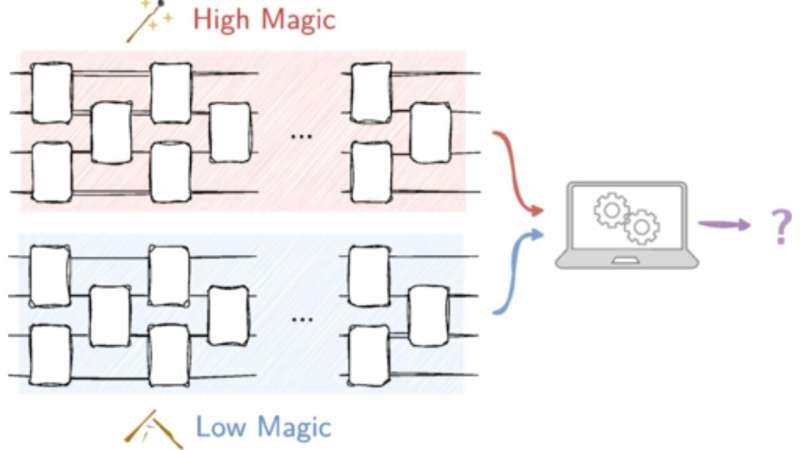Phys.org June 11, 2024
An international team of researchers (USA – Harvard University, MIT, University of Chicago, Germany) introduced “pseudomagic” ensembles of quantum states that are computationally indistinguishable from those with high nonstabilizerness. They demonstrated that pseudomagic neither follows from pseudoentanglement nor implies it. It offers fresh insights into the theory of quantum scrambling: it uncovers states that, even though they originated from nonscrambling unitaries, remain indistinguishable from scrambled states to any physical observer. Applications include new lower bounds on state synthesis problems, property testing protocols, and implications for quantum cryptography. According to the researchers only quantities measurable by a computationally bounded observer hold physical significance. They suggest that nonstabilizerness is a “hide-able” characteristic of quantum states: some states are much more magical than is apparent to a computationally bounded observer… read more. TECHNICAL ARTICLE

Pseudomagic quantum states are computationally indistinguishable from random quantum states. Credit: Phys. Rev. Lett. 132, 210602, 24 May 2024